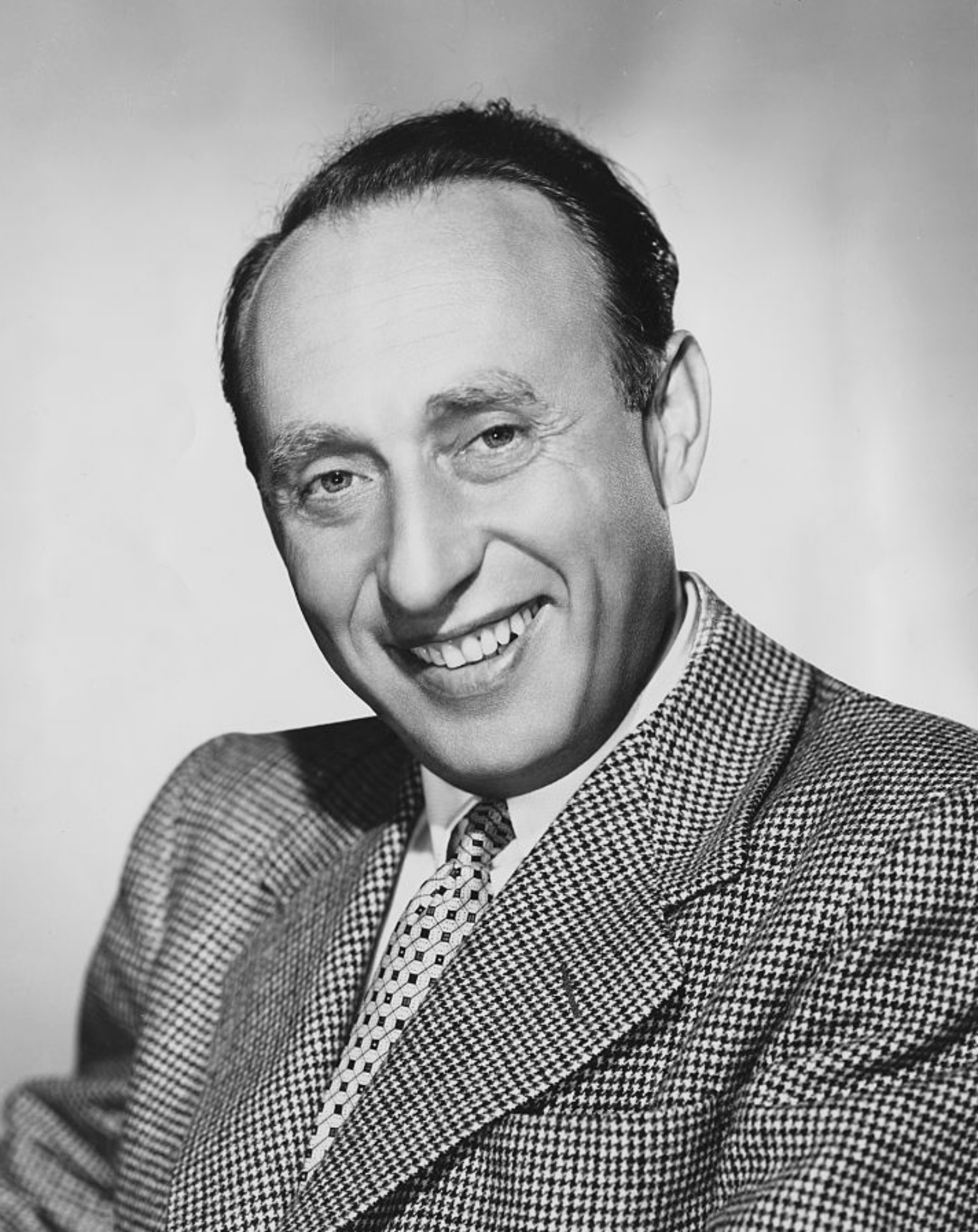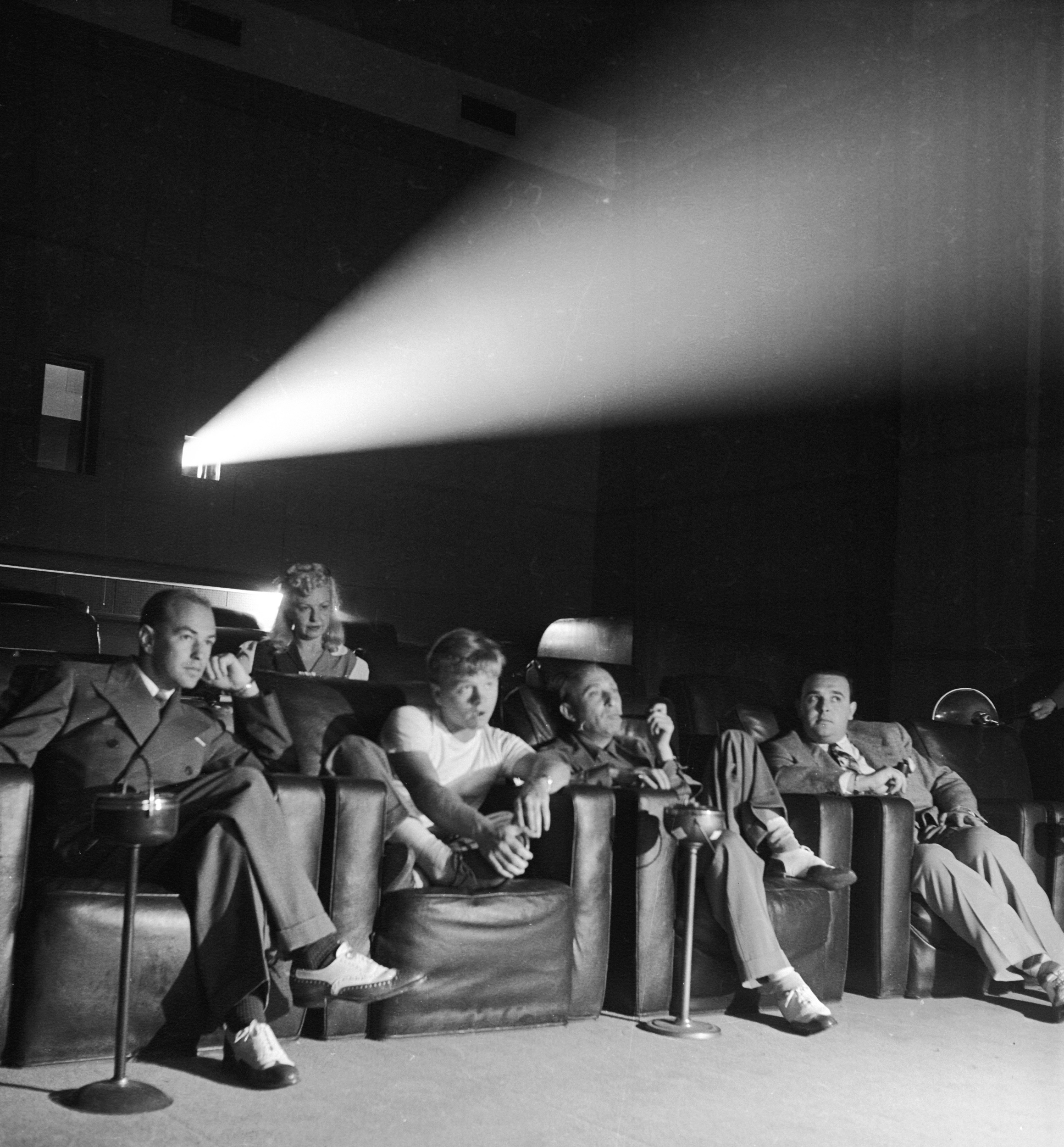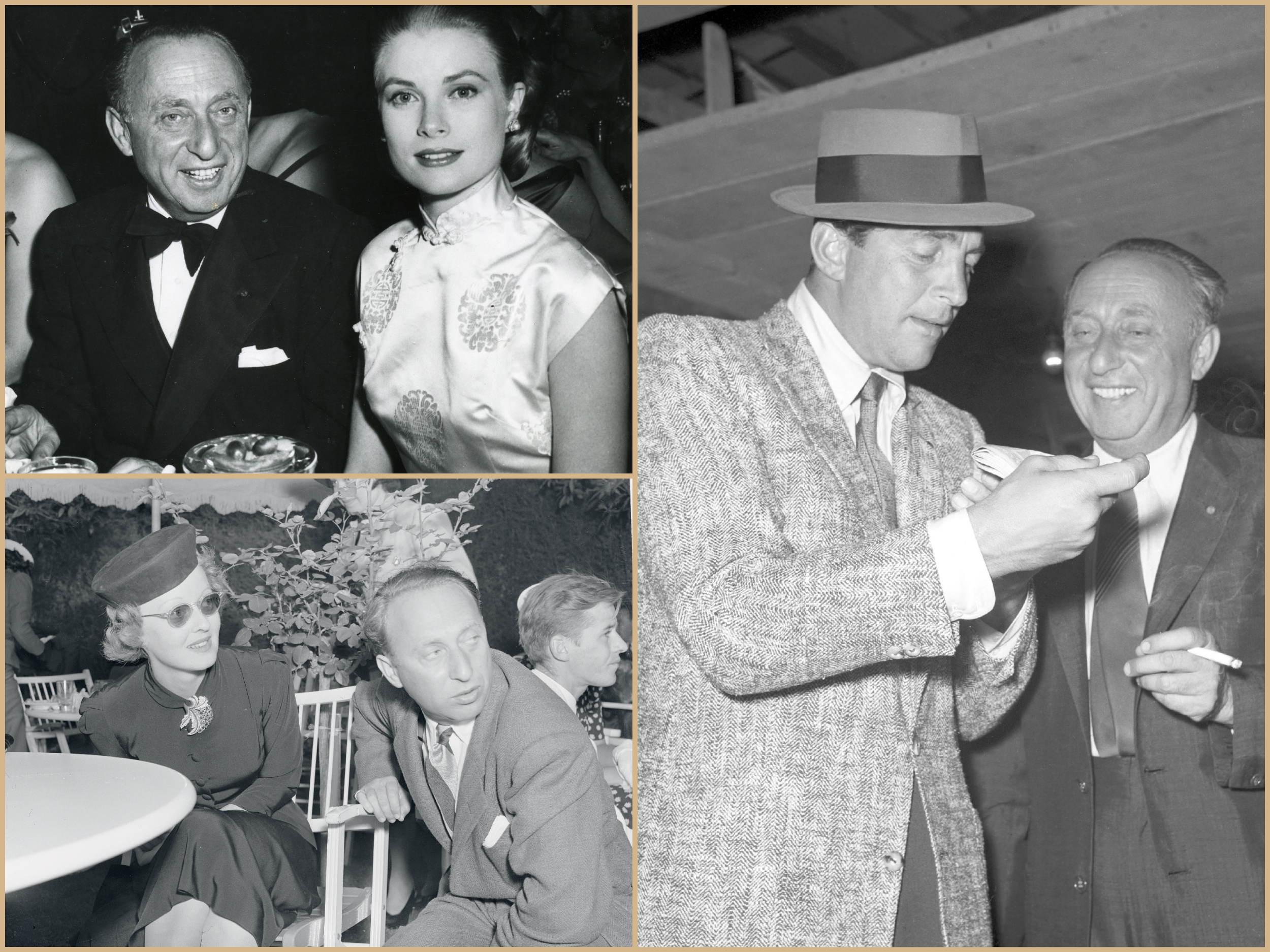
- Film
Filmmakers’ Autobiographies: Joe Pasternak, Easy The Hard Way
At the mention of Joe Pasternak, only the most hardcore cinephiles will probably recognize the name as one the most prolific producers of Hollywood’s Golden Age, with 105 films to his credit, in a 40-year long career that started in 1929. So, it is a treat to discover “Easy the Hard Way”, his breezy autobiography published in 1956, when he was still very active before retiring from the movie business 12 years later.
It all started in Szilagy-Somlyo. The small town in Eastern Hungary where he was born in 1901. One of eleven children. His father was the shammash, sexton, and caretaker of the local synagogue. By tradition, Joe was destined to follow in his footsteps. But, early on, as a teenager, he showed more business sense acumen than religious vocation. At 18 he was sent to live with his uncle who had emigrated to Philadelphia. Slaving away in a belt factory forever was not the future he envisioned for himself. On a whim, he moved to New York, working odd jobs, hoping for a better future. Going to the cinema was the perfect escape.
In 1923, he was so impressed by Charles Ray, the star of The Girl I Loved, that he went to see the film 26 times! “I was movie-struck,” he writes. “I admired him so much that I decided to follow him and go into the movies myself.” He had found his calling. He enrolled at the “International School of movie crafts and arts”, unbeknownst to him a bogus “acting academy.”
Armed with a diploma proudly displaying the mention “entitled to star in motion pictures”, he went to the Astoria studios in Queens which headquartered Paramount Pictures’ eastern operations. The only job offer was not in front of the cameras, but as a dishwasher in the commissary kitchen. Undeterred, he accepted.
Soon promoted to busboy, he could be close to the lunching stars and directors. He became Gloria Swanson’s favorite waiter, always making sure “her salad greens were cold and crisp as she liked them.”
He got the attention of Allan Dwan, one of the studio’s staple directors, “an impressive figure of a man, intensely serious who lived motion pictures and regarded everything that did not concern the making of the film as an intrusion.” Impressed by his drive and spunk, Dwan made him third assistant director. In that capacity, he could observe “how the stars ‘greatness was often measured in direct proportion to the outlandish demands we had to fulfill for them.”
Case in point with Swanson, the reigning queen of the studio: “On a blistering hot day, she had us bring several hundred pounds of ice to the edge of the stage. We mounted a brace of fans behind her and wafted cool breezes at her as she emoted!” To his surprise, Rudolph Valentino was nothing like his public image led to believe, but someone “quiet, sedate, submissive, almost bourgeois. He was sweet, almost shy. When I called him, he arrived on set, ready to work. I never met a more cooperative actor.”
Ambitious, fueled by inextinguishable chutzpah, resourcefulness, and self-confidence, Pasternak knew how to make himself indispensable. After moving to Hollywood in 1926, he was hired as assistant director at Universal, the studio ruled by its founder Carl Laemmle. Two years later, he was sent to Berlin to supervise the making of German-language films for the company subsidiary. There he became enthralled by “the most fabulous, sinful, gay, colorful and saddest city in the world. Restless, feverish, wild.” An intoxicating and decadent mix that Christopher Isherwood would describe similarly in his Goodbye to Berlin, later the source material of Bob Fosse’s Cabaret.

In 1943, producer Joe Pasternak (third from left) watch the screening of Thousands Cheer in a projection room at MGM, flanked by publicity man Leslie Peterson, movie star Mickey Rooney to one side and director George Sidney to the other.
Walter Sanders/Life Magazine/The LIFE Picture Collection via Getty Images
There he also watched Josef von Sternberg direct Marlene Dietrich in the “Falling in Love Again” number from The Blue Angel. Impressed by her obvious star quality, he tried to convince her to sign a contract with Universal, to no avail, because, as he writes, “Joe was keeping her under lock and key.”
In the background, the waning years of the Weimar Republic, the rise to power of Hitler and his Nazi sympathizers grew more and more ineluctable. “I had many friends who insisted that the stories we must make should reflect this troubled, disoriented world,” he recalled. “I rejected the idea because it is my opinion that the movies cannot compete with newspaper headlines and our stories cannot be as immediate, as intense, even as full of surprises. As a foreigner in Germany, I did not regard it as my business to make morbid documentary-toned films about the sad state of the country. I thought I could help more by making people laugh, by giving them a moment a lightness and delight, of sweetness and charm…” And he did.
By 1933, he could not provide such entertainment anymore because of the restrictions and censorship imposed by the propaganda machine of the Reich. He moved to Budapest, temporarily a much safer place. During his eight years in Europe, he oversaw the production of twenty pictures with directors like William Dieterle and Curtis Bernhardt, giving Billy Wilder, already “a brilliant, keen and corrosive writer,” one of his first screenplay credits.
Back in Hollywood in 1936, Pasternak resumed his producing duties under new management at the studio. He cast his discovery, 14-year-old Deanna Durbin, in Three Smart Girls directed by his friend Henry Koster, a huge box-office hit that launched her into instant stardom and saved Universal from bankruptcy.
Nine more films with her followed in just five years in which she portrayed the ideal girl next door whose golden singing voice and wholesomeness enchanted a generation. He controlled that image for as long as he could. But she wanted to get married and be given more dramatic roles. “It was my idea that Deanna would be an example for every girl to look up to, but as she grew older, she started to grow restive.”
In 1939, when Marlene Dietrich was still considered box-office poison by Hollywood, he persuaded her to take on the title role in Destry Rides Again, as the rambunctious saloon owner. He felt she needed a new image because “she had become so stylized and mannered that she had achieved a curious lifelessness on the screen.”

(Left, top): With Grace Kelly at the 1956 Golden Globes; (bottom) chatting with Bette Davis at a garden party he offered at his home, late 1930s; (right) in Sepetmber 1956 with Dean Martn at the Ciampino Airport, in Rome.
hfpa archives; Bettman Achives/Pierluigi Praturlon/Reporters Associati & Archivi/Mondadori Portfolio via Getty Images
The ensuing success revitalized her career and he would quickly make two more films with her. By 1941, Pasternak had left Universal to join MGM where he produced a string of hits. He was instrumental in launching and smartly steering the careers of Kathryn Grayson, Esther Williams, Mario Lanza. Opening his personal pandora’s box of anecdotes, he aims his harshest comments at the latter, whose temperamental behavior and excesses would end up torpedoing his career. He had great hopes for the tenor after his first successes in The Toast of New Orleans, with his song Be My Love, and The Great Caruso. His constant weight issue became a problem. “He ate mountains of food and berated the cameraman for making him look fat.”
He tries his best to be diplomatic on his feelings for Judy Garland during the chaotic six-month-long filming of the 1950 Summer Stock. “I have no wish to revive what happened. But there was never a word uttered in recrimination when she was late, didn’t show up, or couldn’t go on. I never chided her, either personally or professionally. Louis B. Mayer never once sought to pressure me in any of our shooting difficulties. He was a tower of strength, understanding, patience. He was more than a studio chief. In truth, he was like a father, both to me and Judy.”
As a producer, his goal was always to provide audiences with quality entertainment. An equation that he applied to frothy movies like Latin Lovers, Love Me or Leave Me, Luxury Liner, Rich, Young and Pretty, Skirts Ahoy, The Merry Widow, Meet Me in Las Vegas. Elegantly produced light fares, mostly comedies and musicals where stars like Lana Turner, Cyd Charisse, Dean Martin, and Doris Day could be seen at their most glamorous, photographed in Technicolor and Cinemascope.
He considered himself “a super-foreman who makes sure that all the parts are properly machined and finished and that they fit nicely. I don’t know how to write a script, score a picture, design costumes, act, direct, light a set, record a song or apply make-up. But I think I know when all those things are done perfectly, and I try to get these done well.”
Besides the mechanical aspects of making pictures, he insists that “the most important part is an instinct, pure and naked, a feeling, a theatrical hunch that comes alive inside of you. You can’t explain it. You just know.” And, in most cases, it served him well. “I don’t like to give the impression that my career has been a succession of telling, brilliant strokes, each more successful than the last,” he confesses. “It would have been nice, but I had my share of flops.”
“Easy the Hard Way” was published just as Pasternak left MGM after 14 years. So there is nothing of the last part of his rich career which ended in 1968 with his last production, The Sweet Ride, a surfer/biker exploitation movie starring Tony Franciosa and Jacqueline Bisset. In 1966, he penned “Cooking with Love and Paprika”, a cookbook with recipes of his home country. Goulash, creamed schnitzel, stuffed cabbage and other favorites. He passed in 1991 at age 90.

